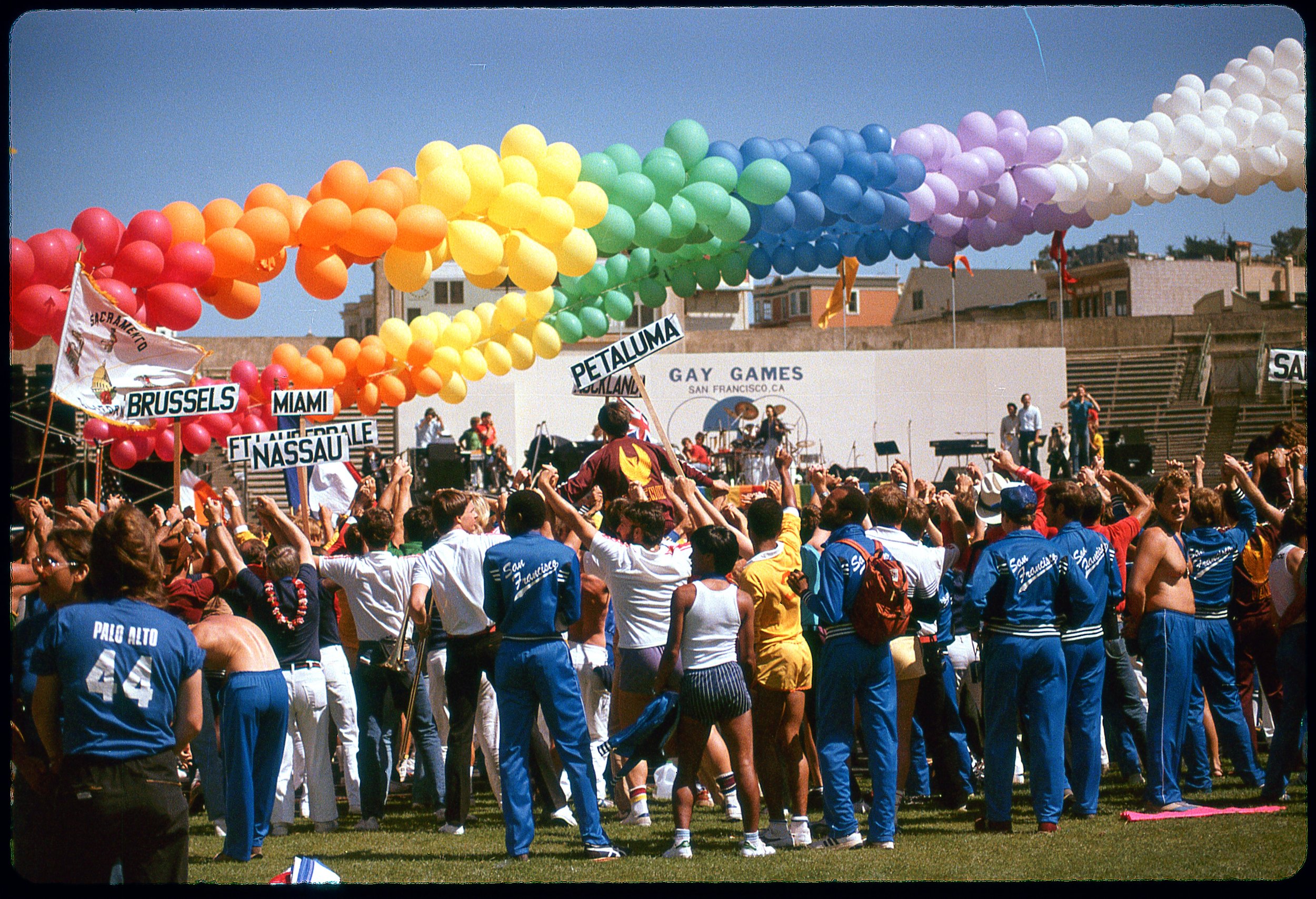
Passing the Torch
11.
The Big Event, Games Change The World, Scholarships
FGG website home page, February 2000
GENE DERMODY: The decade 1992 through 2002 was the most productive for the FGG because of the accomplishments of the Sports Committee under the direction Of Teresa Galetti. It was an honor to serve with her for a time on that committee as her co-chair, with members Rick Van Tassell, Allen Wood, Laura Moore, et al. Armed with the “Red Book,” this Sports Committee team could efficiently modify Sport Rules, add a sport, monitor a host’s progress, do research on sensitive topics, and make recommendations to the FGG Board.
One of the key factors that contributed to this explosion of FGG productivity was Technology. Most FGG people were either computer illiterates or using incompatible software that did not support SHARING of documents very well. Email was not readily available, and the FGG operated with Snail Mail and paper. Even teleconference calls were a financial and technical barrier. As the de-facto Officer of Technology, I pushed through IT standards for documents and communication. Just before NYC 1994, I brought on wrestler Erich Richter, an award-winning web professional, to build out the FGG’s first website and internal communications. It included one of the first interactive on-line Discussion Boards, “The IntraNets” for fostering real time discussions by topic. It was wild and unmoderated, but it allowed for the searchable documentation legally required for what led to FGG Policy changes.
Gay Games VI banners in Sydney, 2002
RICHARD HOGAN: After our unsuccessful bid to host Gay Games V in Sydney, a few of us on the bid team set out a strategy to win the right to host Gay Games VI. As many people reading this would know, it is a long journey from considering a bid to host a Gay Games to successfully delivering the event. Sydney’s 2002 Gay Games, while not without difficult issues, will remain in my mind as the most special Gay Games.
Scholarship recipients at Gay Games VII, Chicago in 2006
JEFFRY PIKE: In 1995, when Roy M. Coe’s family and the Federation of Gay Games (FGG) reached an agreement about the transfer of the Coe Scholarship funds, I learned that Roy identified me, to be the Federation of Gay Games Director of the fund, and his brother, Jerome Coe, to represent the Coe family. This honor soothed my feelings of loss for my friend; it also pushed me to truly see the world beyond my local community and to grasp the complexities of comparing needs across different countries, continents, genders, cultures, and underrepresented demographics (Roy always had a knack for pushing me out of my comfort zone).
The first distribution from the Coe Scholarship Fund went to Leonie van Bommel, who had been the administrator of the Outreach Program for Gay Games V - Amsterdam (1998). The scholarship made it possible for van Bommel to travel to an FGG annual meeting to talk about Amsterdam’s process for awarding scholarships.
In the spirit of Roy’s interviewing participants for his book, I began the practice of interviewing as many recipients of the Scholarship as possible, and attending their Gay Games event. Coincidently to Roy, Leonie started her connection with the Gay Games when she “walked into the Gay Games office to volunteer.” She was asked to be the administrator for the Outreach Program. Her response was “Yes, I’d love to.”
In addition to talking about the challenges of establishing criteria for making tough decisions, Leonie noted that some of her greatest memories of the Games occurred when outreach recipients came to the Friendship Village to check in.
“Having done so much work communicating with outreach participants, seeing names go by on a [computer] screen, on applications, on letters, after the intense work to make all the arrangements, to [then] put a face to the name gave me warm feelings – and to feel in return the warmth, happy faces, enthusiasm, they were glad to be at the [Games].”
— Leonie van Bommell, Outreach Program, Gay Games V - Amsterdam (1998)
A 2017 promotional video about the FGG Scholarship Program
A 2006 video about the Scholarship Program at Gay Games VII
Memorial Moment, 2016 Annual Meeting, Sydney AU
BRENT NICHOLSON EARLE: At GGIV: New York 1994, I remember getting my participant’s packet and being horrified by the lack of AIDS information in it. Not even a condom. I realized it was up to the Federation to take the mantle on AIDS information. At the next FGG annual meeting we created a Wellness Task Force. By 1996 we had lost a lot of people to AIDS and to breast cancer. The task force focused not just on spreading information, but also about paying tribute to those we’ve lost.
We began holding a Memorial Moment at each FGG annual meeting, beginning in 1997 in Denver. Initially it was a simple quilt unfolding with a reading of the names of people we had lost. People could leave written memorials on the quilt.
The Memorial Moments are now treasured parts of the Gay Games as well as FGG meetings. They have beautifully incorporated music and local customs.
A video of the 2016 Memorial Moment
A video of the 2020 virtual Memorial Moment





